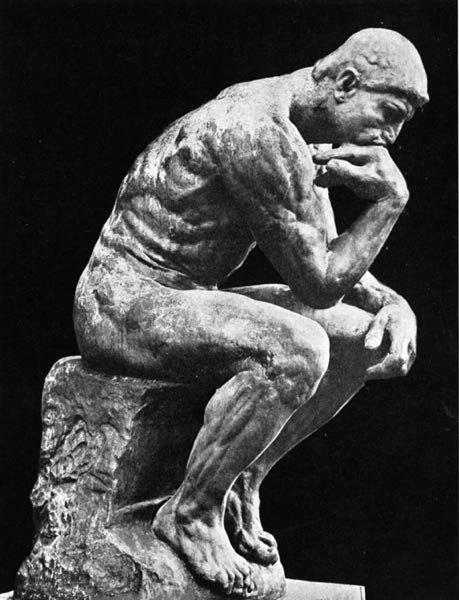Object and definition of Philosophy /part 4/
While mechanics, for example, is trying to identify and explain the peculiar movements that it encounters in the world of things, basic science asks what is a "movement" at all? Mineralogy and astronomy tell us about actual minerals and celestial bodies and their actual movements and relationships, while basic science has the task of shedding light on the question: What is reality, in fact, and how does it differ from actual to invalid? Chemistry gives us the knowledge of the interaction of various bodily individuals: physics speaks of particular actions and causes, but what the "action" itself is, what is "causing" in general, is the subject of basic science. Psychology as a fundamental science studies various phenomena, respectively changes of consciousness, but what is "consciousness" in general, this is one of the most general questions and as such refers to a subject of basic science. The same must be said about the notions: emergence, extinction, peace, power, space, time and so on.
Philosophy, as a fundamental and universal science, has the task of "uniting the achievements of the special sciences into a worldly view." This does not mean, however, a mechanical summation of the achievements of the Exact Knowledge. It is again about the same explanation of basic categories and concepts, but on another methodology and with the help of another concept-categorical apparatus. In this connection, William James writes about the philosophy: It is a worldview, a view of life in the light of the intellect. Philosophy is a thought of the common, of the most common properties of being. Philosophy, this is metaphysics, and metaphysics is the discussion of various unexplained, abstract, universal questions that are usually placed but are not solved by science and life; questions as if left aside, questions broad and deep concerning the integrity of all things or its primordial. For example, what is thought and what is real, and how are they connected? What do we mean when we say the word truth? Is there a single one a raw material at the root of everything? Why does the world exist, and can not it also be assumed that it could not exist?
Which reality is the most real? What brings together all things in a universe? Is unity or multiplicity a basic property of being? Do things have one or many sources of origin? Is the world limited or infinite? Is the world space full? What is God? How are the spirit and body connected? How does one thing work on another? How can one thing turn into another, or how can one thing come from another thing, new? Are space and time real, and if they are not, what are they? How does the subject achieve its object and how the object penetrates the subject? Knowledge is done using common concepts. Are they real or just single things real? What does the word "something" mean? Are the origins of reason born or are they gradually emerging through experience? Metaphysics explores the causes, the essence, the meaning and the entire destiny of the whole being. It is a science of the most common beginnings of the experiential and supernatural reality in their interrelation and in their attitude to cognitive ability. William J. "Introduction to Philosophy".
Definition: There are a variety of formulations for the subject of philosophy, and each philosophical school and strand define its different way its object. However, what can positively argue in this respect is that philosophy is a science of the most general laws and principles in the development of nature, society and thinking. In this plan, Christian philosophy also places the person with his attitude to God as his primary cause and initiator. Consequently, Christian philosophy explores and studies man in the attitude towards God, His creation and the very people in the general plan of being, as well as the value system in this correlation: God - Man - Creation. But in parallel, she studies the laws, paths and methods of the cognitive process.

Very good definition of the term philosophy. I think there is another question that was left out, the fact of life and death, will there be something beyond death? When we die, do we cease to exist? I think it has to do with Man - God - Creation. What is our purpose of existence? Being born, growing, reproducing and dying? and after that? Well they are just things that came to my mind. Thanks for such a thoughtful post. Regards
great as always.
You got a 3.96% upvote from @emperorofnaps courtesy of @godflesh!
Want to promote your posts too? Send 0.05+ SBD or STEEM to @emperorofnaps to receive a share of a full upvote every 2.4 hours...Then go relax and take a nap!
You have recieved a free upvote from minnowpond, Send 0.1 -> 10 SBD with your post url as the memo to recieve an upvote from up to 100 accounts!
To listen to the audio version of this article click on the play image.

Brought to you by @tts. If you find it useful please consider upvoting this reply.
Awesome
Very informative
In this post..learn new think about philosophy...
great art